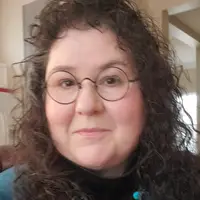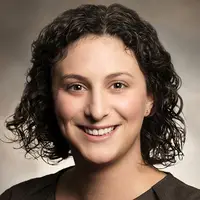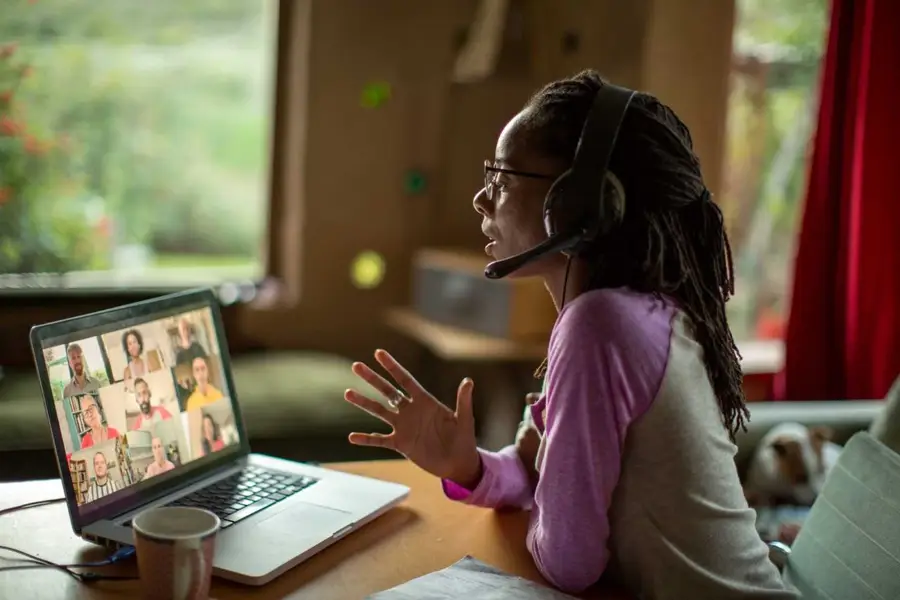This blog is the first in our series Capacity Development Methods at Work Locally.
Communities of Learning and Learning Communities: Three Successful Cases
Below we share three cases where CoPs or LCs successfully deepened learning, built sustainable capacity, and created effective communities around shared interests and goals.
We hope that these examples and suggestions will help others tailor a CoP or LC to their own context.
1. Organic origins: Building a strong CoP foundation
In 2016, three colleagues at RTI working on project monitoring, evaluation, and learning (MEL) realized they were working to solve similar problems in different sectors. They decided to form a small group—meeting for lunch once a month to easily share tools and problem solve together.
The group identified a shared goal sparked out of a desire to connect with each other, share methods and ideas, and leverage each other’s experiences in ways that would enable everyone in the group to work smarter. The members of the group bonded around a commitment to mutual learning, sharing innovations, and successful approaches and eliminating duplication in their work. The group focused their efforts on creating a space where staff working in MEL, research, capacity development, and program management could learn from each other and access MEL-related resources, tools, and support.
Now in its fifth successful year, RTI’s internal MERLA (Monitoring, Evaluation, Research, Learning and Adapting) CoP shares tools, generates ideas, offers advice, problem solves, and provides a forum for exploring the latest developments related to the cycle of applying results-focused M&E and research for continuous learning and adapting to improve program effectiveness among its 80 members worldwide.
In addition, throughout the evolution of the global COVID-19 pandemic, the MERLA CoP has adapted to continue providing a convening space to an international workforce that has been navigating the challenges of implementing MEL activities in new contexts by:
- Doubling down on virtual spaces: using zoom meetings, email listservs, and Teams posts to connect asynchronously and remotely.
- Organizing internal learning sessions for staff to share changes to monitoring, evaluation, research, learning, and adapting (MERLA) to spread lessons learned, challenges, and successes.
- Convening experts in a series of webinars on Learning and Adapting During COVID-19 to discuss experiences responding to the challenges of COVID-19 in developing countries.
2. Creating learning communities that foster transformational change and skills mastery
As the implementer of several USAID-funded projects in Uganda, Laos, Malawi, and Madagascar, RTI successfully facilitated and moderated focused and time-limited learning communities that support local leaders in mastering new skills while participating in RTI-developed leadership and stewardship programs.
In program cohorts across these four countries, participants designed and led WhatsApp-based learning communities (LCs) that created virtual platforms for dialogue, reflection, skills practice, troubleshooting, peer-to-peer learning and mutual support. Most of these LCs have been time limited to the duration of the program. Such time-bound communities can add as much value as those that are created and build and evolve over time.
These LCS serve as an important and key anchor for RTI’s “leading from the inside-out” and “Steward’s Way” approach to creating spaces where local leaders develop leadership and stewardship skills among local leaders across multiple sectors. Throughout the COVID-19 pandemic, leveraging the LC between face-to-face and virtual workshops creates focused opportunities for virtual connection and support that are vital as face-to-face workshops and other opportunities for in-person interaction become more limited as restrictions on gathering evolved and shifted.
3. Recent innovations in creating CoPs that generate local impact
In Costa Rica, Haiti, Malawi, Senegal and Uganda, the Feed the Future Innovation Lab for Crop Improvement (ICLI) at Cornell University and its partners created a CoP that is democratizing data and promoting local capacity in M&E. This CoP sprung up out of a shared desire to transform their project-level performance data from something donors use to ensure accountability to a valuable local asset that can be leveraged to inform local decision making. Community members demonstrated deep commitment by rallying around a shared vision of re-imagining how routine reporting data can be used to improve breeding programs across these five countries.
Forged during the peak of the COVID-19 pandemic, this dynamic community brought together key local stakeholders from across the five countries to demystify ICLI’s performance reporting data and re-envision how the data they collect can be useful to their own local implementation and inform project-wide decision making.
In one year, this CoP transformed a systemic obstacle into an opportunity for innovation and change. The CoP has now expanded its membership to include representation across each program objective area (e.g., breeding informatics, cross-cutting themes, genomics, institutional capacity, phenomics, priority setting and trait discovery) that are now a diversified, ILCI-wide multidisciplinary group of collaborators who are actively seeking ways to use their data to transform agriculture research programs and improve project performance.
Applying lessons learned from CoP and LC experiences
As more groups experiment with using CoPs and LCs, some common threads are emerging regarding what members of these communities identify as features that best meet their needs. These successful CoPs and LCs underscore the importance of eight core features:
- Sharp focus /clarity of purpose to prevent information overload among members.
- Tight-knit group of committed individuals with a shared vision,
- Decentralized community model where access to information, platform, or group is not “owned” by one individual, group or organization.
- Skilled moderation and curation that creates value for community members.
- Reciprocity created by members, both in giving and receiving high value support, information, and advice.
- Valuable leadership support that encourages growth and development of the community and leverages financial and other resources (especially at a community’s inception).
- Diverse and inclusive representation that brings new perspectives, mutual-learning, and increases potential for innovation.
Vibrant CoPs and LCS are ones that listen deeply to their membership and leverage these core features to meet the needs of their members, work efficiently to foster reciprocal participation and encourage contributions that make smart use of community resources.
For instance, the ILCI community identified that using familiar digital platforms (e.g., WhatsApp, Teams, etc.) makes a significant difference in community engagement. The ILCI ultimately added a WhatsApp channel to their community after the Malawi members shared that it was difficult for them to keep an eye on email or use Slack with low bandwidth, and suggested WhatsApp which worked well for all members.
CoPs and LCs also thrive with executive leadership support and dedicated funding (at least at start up). These CoPs and LCs are highly flexible and can be convened for a finite period and sunset and still be successful or evolve overtime along with the community’s needs.
Also notable are the limitations of these types of communities. Both CoPs and LCs rely heavily on member investment/engagement and quality contributions made by members. Their effectiveness is highly dependent upon how valuable the members perceive them to be. Communities without some level of executive leadership support and dedicated funding at start up may flounder and struggle to gain momentum. Likewise, some level of community leadership and moderation is necessary to maintain focus and stay relevant or decide when it is time to sunset a community at the end of its useful lifespan.
Leveraging the power of CoPs and LCs moving forward
Looking ahead as the international development community continues to navigate the global COVID-19 pandemic and beyond, well-structured, and well-moderated CoPs and LCs can be powerful venues for mutual learning and knowledge sharing, particularly when other means of communication and connection (e.g., conferences, technical assistance, traditional training, etc.) are constrained due to external forces. Some of these changes may become permanent (i.e., less travel from the US; using virtual platforms to expand scope and reach). CoPs and LCs are viable options for maintaining and deepening human connection and continuous learning across increasingly virtual venues and platforms.
Moving forward we recommend leveraging CoPs and LCs to add value when developing local capacity and seeding local ownership. These communities can:
- Foster continuous communication and remote and peer-to-peer learning support to field activities.
- Create internally focused initiatives within organizations and learning spaces (e.g., innovation engines and incubators).
- Provide targeted and time-limited focused learning spaces that support mutual learning, practice, and mastery to extend learning and capacity development beyond traditional training methods among key local actors.
To learn more, visit our MERLA Hub.




